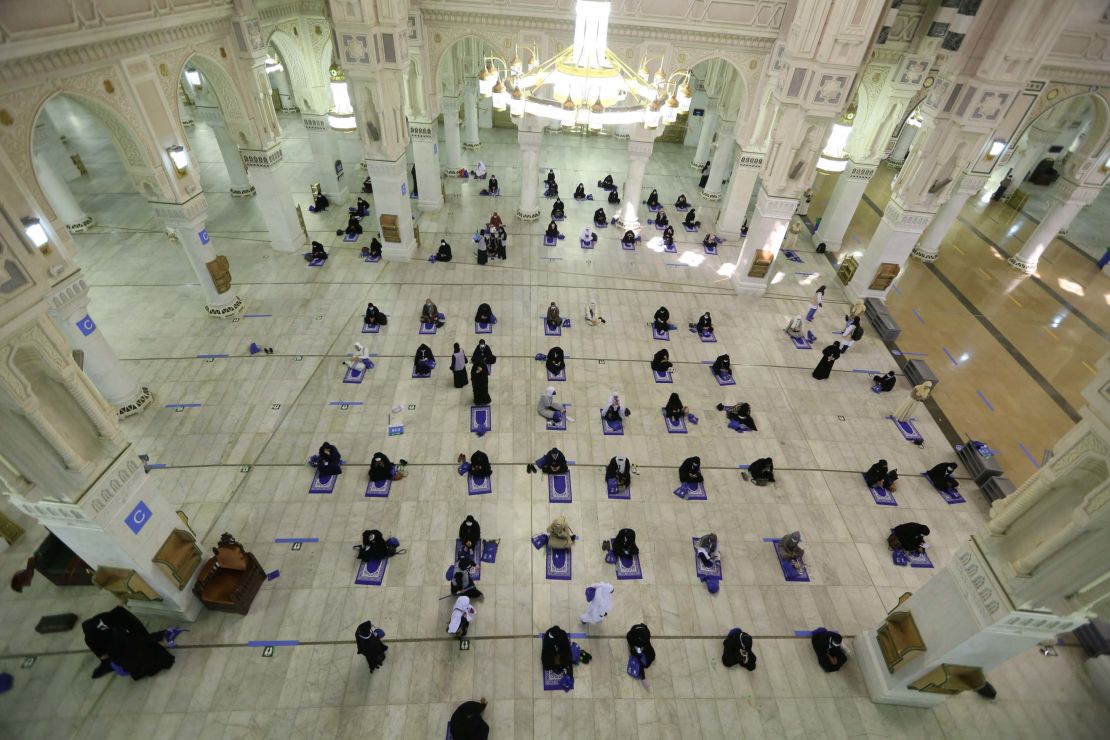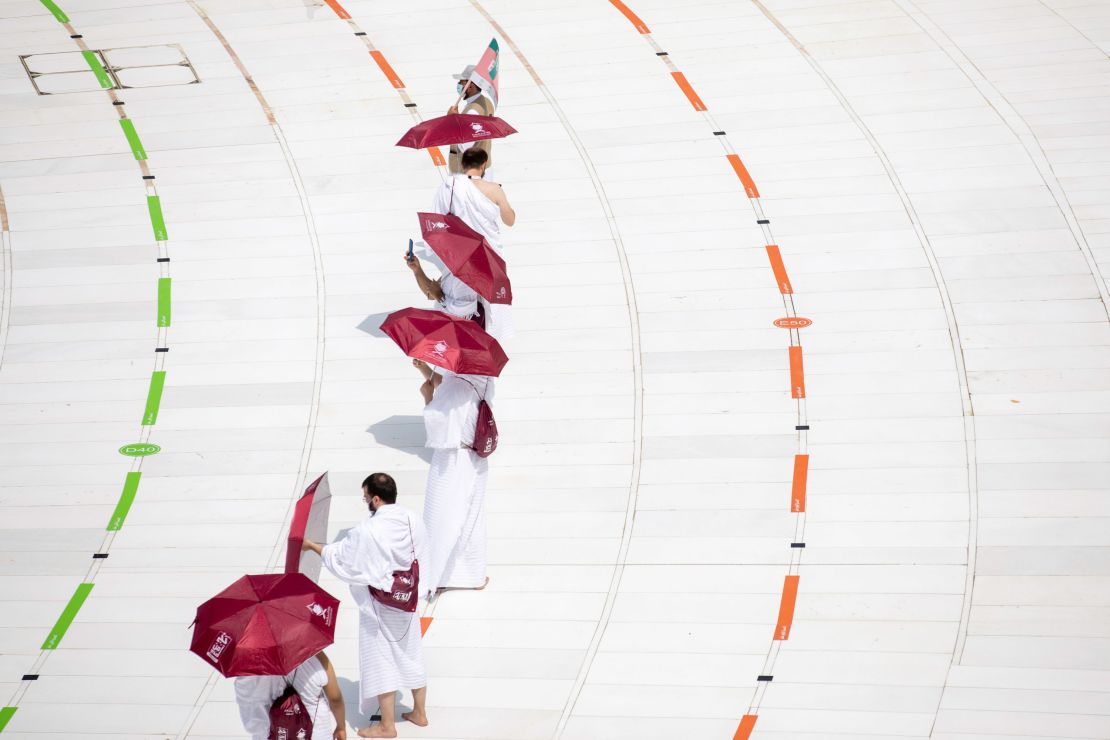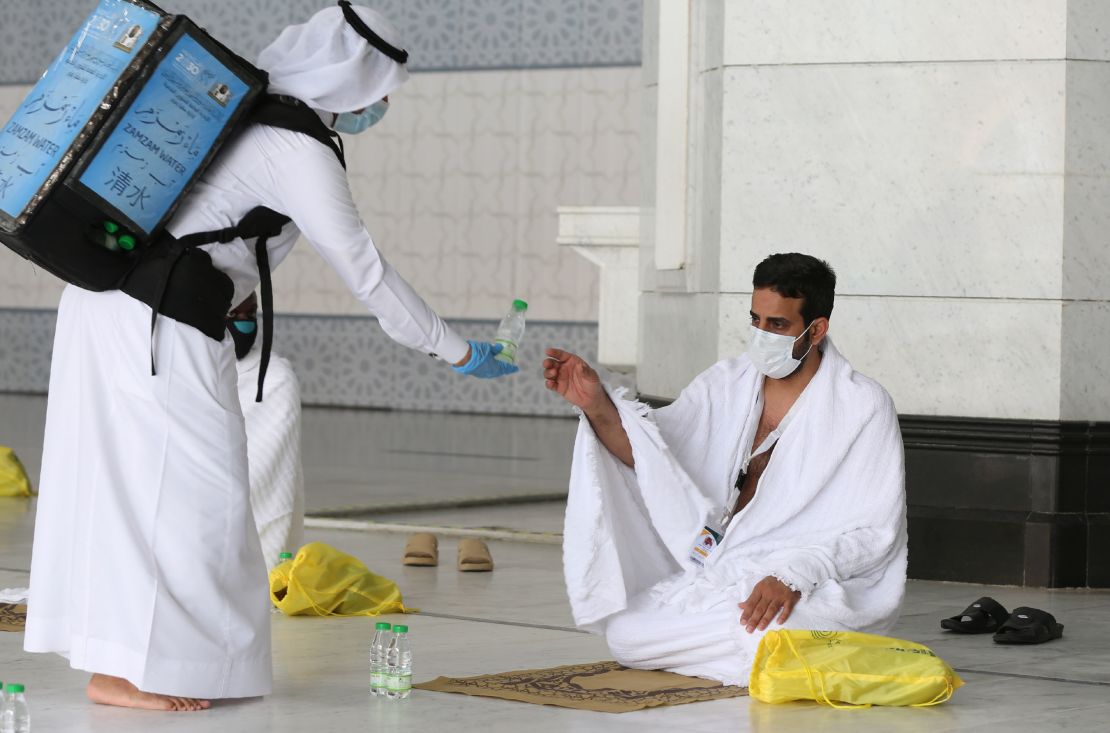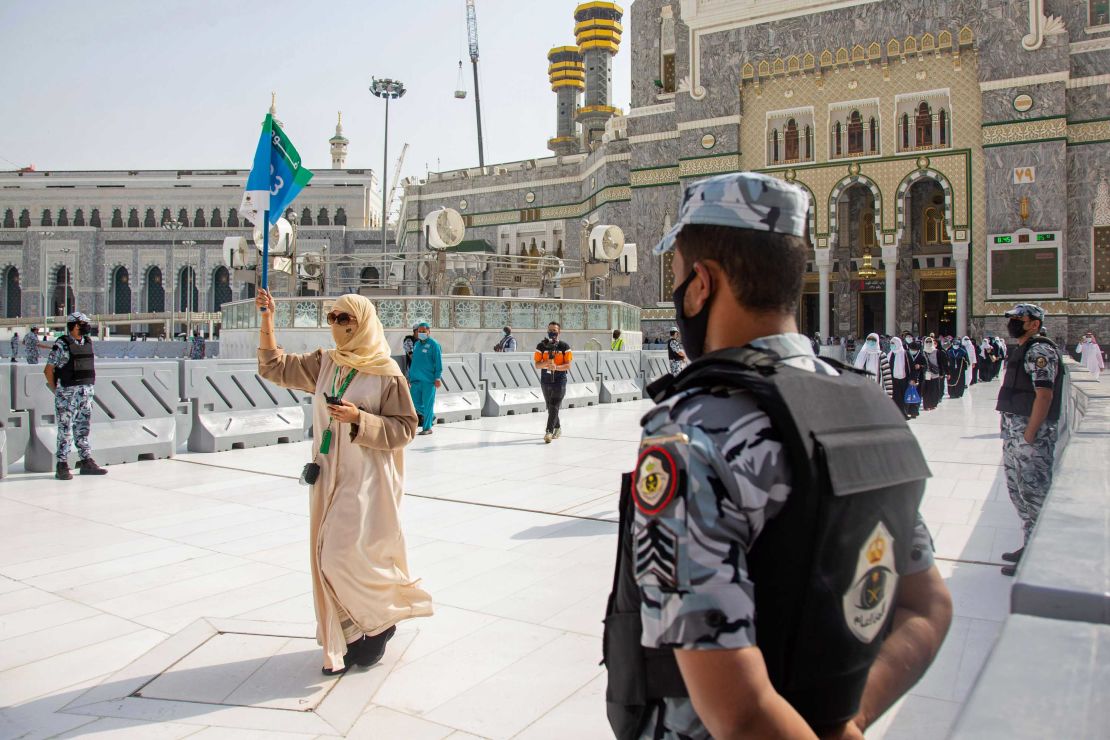Islam’s most important annual pilgrimage got underway with just a small fraction of its regular number of worshippers, amid concerns over the coronavirus.
Only around 1,000 pilgrims will attend the Hajj this year due to new crowd control restrictions put in place by Saudi Arabia. The holy sites in the cities of Mecca and Medina normally host more than 2 million people during the pilgrimage.
For the first time in decades, international travelers have been barred from the Hajj. Some 70% of the worshippers this year are foreign residents of Saudi Arabia, with the rest being Saudi nationals. All of those selected to take part are aged between 20 and 50.
Saudi Arabia – which has the highest number of Covid-19 infections in the Arab world – has called this year’s Hajj “unprecedented.”
Previously, Saudi authorities had hinted that the annual pilgrimage, one of Islam’s five major pillars, could be canceled, calling on potential pilgrims to put their plans on hold.
“Hajj in 2020 is a truly exceptional pilgrimage by all measures,” Saudi Minister of Hajj and Umrah Muhammad Saleh bin Taher Benten said, according to a statement by the kingdom’s media ministry. “Due to the exceptional global health circumstances caused by the coronavirus pandemic, strict precautionary measures have been applied to ensure a healthy Hajj for all pilgrims.”
Authorities say that pilgrims performing Hajj this year have undergone a rigorous selection process and that they were required to go through periods of self-isolation before arriving in the holy cities. They are expected to quarantine after their arrival and upon their return, according to the media ministry.
“This is a very special situation we find ourselves in,” said Kehinde Qasim Yusuf, an Australian pilgrim at this year’s Hajj. “We also have the privilege to perform Hajj on behalf of the entire Muslim world.”

For the pilgrims who CNN spoke to, the Hajj comes as a relief after months of confinement and being away from family.
“Honestly with everything that I went through, going through the isolation and having family so far away, the opportunity to perform Hajj made up for everything,” said Yusuf, an assistant professor at Taibah University in Medina.
Saudi Arabia has almost 270,000 confirmed Covid-19 cases and more than 2,700 deaths. Earlier this year, it suspended the Umrah – a smaller version of the Hajj that can take place at any time of the year – over fears it could spread the pandemic.

The Hajj is one of the biggest religious gatherings in the world. It occurs two months and 10 days after Ramadan ends, during the Islamic month of Dhul-Hijjah.
The height of Hajj corresponds with the major Islamic holy day Eid al-Adha, which commemorates Abraham’s readiness to sacrifice his son on Divine orders.

The pilgrimage, conducted over five days, includes numerous detailed rituals including wearing a special garment that symbolizes human equality and unity before God, a circular, counter-clockwise procession around the Kaaba, and the symbolic stoning of evil.
Another pilgrim, Moroccan-French 29-year-old Sarah Lagdaa, says that “everything happened so fast in the process of applying, getting selected and then going through the medical tests and getting ready.”
“So the quarantine is really a valuable time to pause and rest and think,” she told CNN. “My mother cried out of joy when I told her. We haven’t seen each other since December 2019.”

“I have the feeling that having your daughter far from you and taking such a big step in her faith as a ‘grown -up’ makes her proud.”
Commenting on the safety measures, Lagdaa said it only makes her feel better about performing the Hajj.
“I am happy about this quarantine because it means that the Ministry of Hajj is taking good care of the pilgrims and putting health a priority,” she said.
“I actually think there would never be a better time to perform Hajj for me.”






